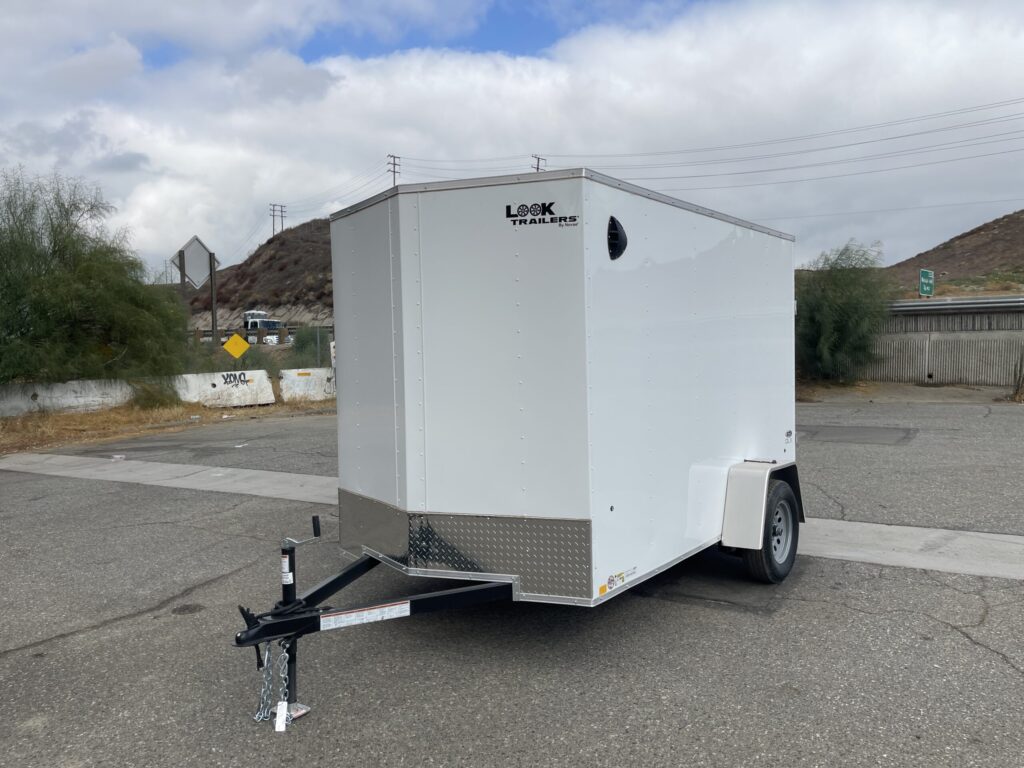Investing in a cargo trailer is a smart move for anyone who needs reliable hauling—whether you’re a contractor, landscaper, small business owner, or just someone with a lot to move. But with so many options available, choosing the right cargo trailer can feel overwhelming. Do you need a single or tandem axle? Enclosed or open? Steel or aluminum? Each option comes with pros and cons, and the right trailer for you depends on what you plan to do with it.
In this guide, we’ll break down the key factors to consider so you can make the right choice for your needs and budget.
1. What Are You Hauling?
Before you even start looking at trailer specs, think about what you’ll be using the trailer for. Are you hauling landscaping equipment? Furniture? Tools? ATVs or motorcycles? The type and weight of your cargo should be your starting point.
- Light tools or household items: A small single axle trailer (like a 5×8 or 6×10) could be all you need.
- Heavy machinery or multiple pieces of equipment: You’ll likely need a tandem axle trailer to handle the added weight safely.
- Valuable or weather-sensitive gear: An enclosed cargo trailer offers protection from the elements and added security.
2. Open vs. Enclosed Trailers
This is one of the biggest decisions you’ll make. Here’s a quick breakdown:
- Open Cargo Trailers:
These are ideal for hauling lawn equipment, debris, or anything that isn’t affected by weather. They’re usually less expensive, lighter, and easier to load. However, they offer zero protection from rain, wind, or theft.
- Enclosed Cargo Trailers:
Enclosed trailers are essentially a mobile garage. They protect your items from weather, provide added security, and can even be customized with shelving, lighting, or ramps. They are heavier and more expensive, but the protection and versatility are often worth it—especially for business use.
3. Single Axle vs. Tandem Axle
Axles affect how much weight your trailer can carry and how it handles on the road.
- Single Axle Trailers:
Best for lighter loads (typically under 3,500 lbs). They’re easier to maneuver and maintain, and generally more affordable.
- Tandem Axle Trailers:
Built to handle heavier loads, tandem axle trailers offer better stability and safer towing over longer distances. If you’re regularly hauling over 4,000 lbs, or driving long distances, a tandem axle is likely the better choice.
4. Size Matters
Cargo trailers come in a wide range of sizes, and it’s important to match the size to your actual needs—not just your “maybe someday” dreams.
- Smaller trailers (4×6 to 6×12) are good for light hauling, moving jobs, or part-time use.
- Medium trailers (7×14 to 7×16) offer more room for tools, equipment, or recreational vehicles.
- Large trailers (8.5×20 and up) are ideal for contractors, movers, and people who need to transport large or heavy loads regularly.
Make sure to also consider how much space you have to store the trailer when it’s not in use.
5. Weight Ratings and Towing Capacity
Always check the GVWR (Gross Vehicle Weight Rating) of a trailer. This number tells you the maximum combined weight of the trailer and its load. Compare this to your vehicle’s towing capacity, which you’ll find in your owner’s manual or on the manufacturer’s website.
Overloading a trailer is not only dangerous—it’s illegal. Choosing the right trailer means matching its capacity to both your cargo and your tow vehicle.
6. Material: Steel vs. Aluminum
- Steel Trailers:
Steel is strong, durable, and generally more affordable upfront. However, it’s also heavier and prone to rust if not properly maintained.
- Aluminum Trailers:
Aluminum is lightweight, rust-resistant, and easier on your tow vehicle. While they cost more, they’re a great long-term investment, especially if you’re concerned about fuel economy or corrosion.
7. Extra Features to Consider
Once you’ve nailed down the basics, look at optional features that can make your trailer more functional:
- Rear or side ramps
- Interior lighting
- Shelving or storage options
- Spare tire mounts
- Ventilation (especially important for enclosed trailers)
These features might seem small, but they can make a big difference in everyday usability.
Final Thoughts
Choosing the right cargo trailer starts with understanding your needs—both now and in the future. Don’t just go for the cheapest option or the biggest one on the lot. Take time to consider what you’ll be hauling, how often you’ll use the trailer, and what kind of features matter most to you.
A well-chosen cargo trailer is more than a tool—it’s an investment in your business, your hobbies, or your ability to get things done. With the right trailer, you’ll save time, avoid hassle, and get the job done right—every time. We recommend Idaho trailer sales.











